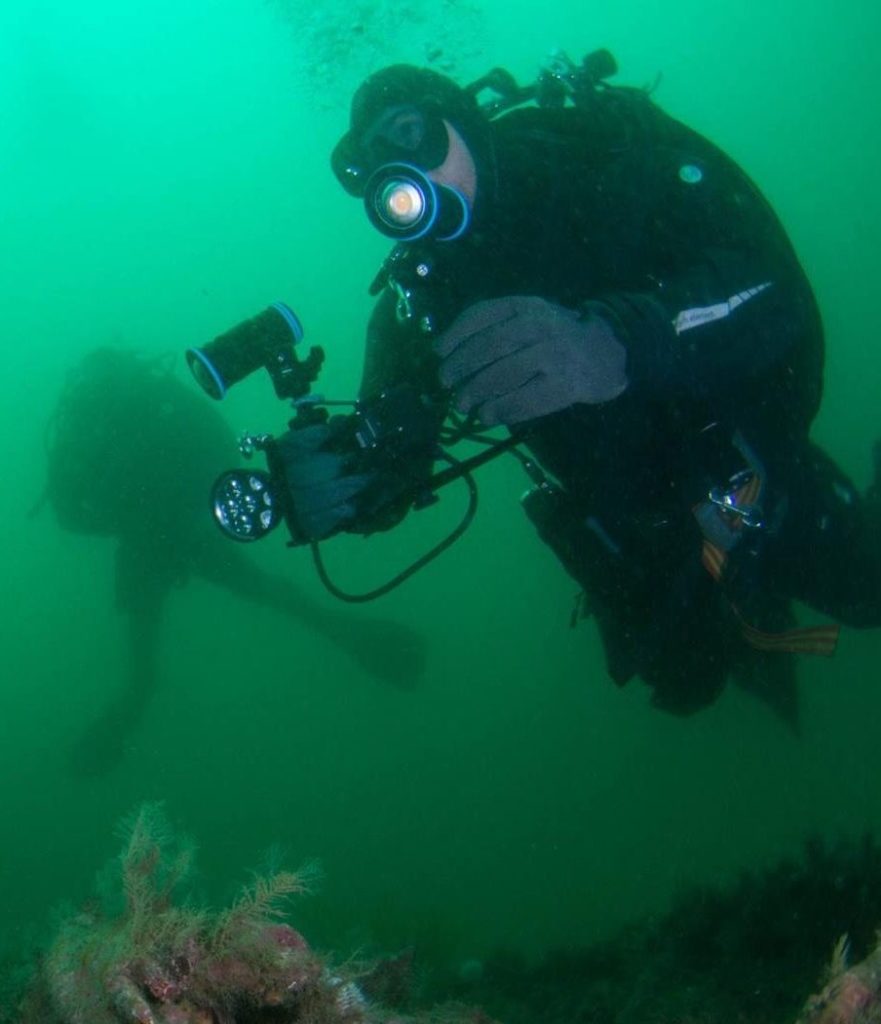
My background is a BSc (with Hons) in Marine Biology and Coastal Ecology and an MSc in Marine Renewable Energy. My last year prior to starting to my PhD has been with environmental consultancy working on a range of projects with a range of roles. Between my BSc and MSc I took some time out to travel, and worked a plethora of different jobs to give me a number of skills in logistics, management and teaching. I am also an avid scuba diver and use skills learnt during my time in the recreational (and technical) dive industry for scientific diving and research.
Blue carbon audit of Orkney
Climate change is predominantly caused by anthropogenic activities releasing carbon into the atmosphere. Blue carbon may be loosely described as the carbon captured by the natural environment in the marine environment. This may occur in sessile habitats such as kelp forests, maerl beds, seagrass and saltmarshes and in mobile species such as algae, fish, birds and mammals.
PhD Aims:
- To more accurately characterise blue carbon ecosystem function, synergistic relationships, geological processes, and how these link to changes in environmental parameters such as temperature and pH. This is essential to allow us to make informed observations about future potential impacts to carbon pathways. This will help inform marine spatial planning and policy for the government to then mitigate the impacts of climate change.
- To create a framework with which to map and predict extent ranges of sessile habitats, and their rates of carbon sequestration in addition to attempting to evaluate this service, and other ecosystem benefits that they provide. This then allows these processes, benefits, and services to be brought into economic models to then better inform upon sustainable development.
PhD Objectives:
- I have identified several key knowledge gaps regarding data on the thickness and depth of blue carbon habitats. To address these, I hope to use a subsea drilling rig to obtain core samples. The methodology concerning the analysis of the core samples will be developed prior to operations, and foster collaboration between multiple universities and across research fields. The data from these cores will provide novel insight into blue carbon research, blue carbon economies, biological (and geological) processes, and inform upon carbon pathways and potential changes with climate change.
- From there I can more accurately quantify blue carbon resources and their rates of sequestration. This will then feed into an analysis of financial appraisal techniques to incorporate these elements into modern economic models for sustainable development. With effective evaluation this can ensure blue carbon habitats are properly represented within policy, governance and planning.
- Other objectives with which to achieve the aims of the PhD will be defined, and redefined, during the course of the PhD with regard to practicalities of objectives and availability of resources.
Contact Details:
- Email: [email protected]
- Twitter: @JackSheehy12
- Research Gate
- Institutional Profile
Publications:
- Sheehy, J., Taylor, N., Zwerschke, N., Collar, M., Morgan, V., & Merayo, E. (2022) Review of evaluation and valuation methods for cetacean regulation and maintenance ecosystem services with the Joint Cetacean Protocol data. Frontiers in Marine Science, 741. https://doi.org/10.3389/fmars.2022.872679
